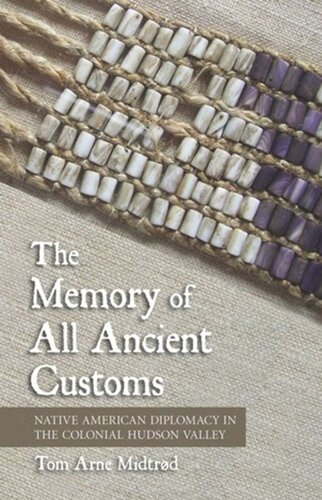

Most ebook files are in PDF format, so you can easily read them using various software such as Foxit Reader or directly on the Google Chrome browser.
Some ebook files are released by publishers in other formats such as .awz, .mobi, .epub, .fb2, etc. You may need to install specific software to read these formats on mobile/PC, such as Calibre.
Please read the tutorial at this link: https://ebookbell.com/faq
We offer FREE conversion to the popular formats you request; however, this may take some time. Therefore, right after payment, please email us, and we will try to provide the service as quickly as possible.
For some exceptional file formats or broken links (if any), please refrain from opening any disputes. Instead, email us first, and we will try to assist within a maximum of 6 hours.
EbookBell Team

5.0
50 reviewsIn The Memory of All Ancient Customs, Tom Arne Midtrød examines the complex patterns of diplomatic, political, and social communication among the American Indian peoples of the Hudson Valley—including the Mahicans, Wappingers, and Esopus Indians—from the early seventeenth century through the American Revolutionary era. By focusing on how members of different Native groups interacted with one another, this book places Indians rather than Europeans on center stage.Midtrød uncovers a vast and multifaceted Native American world that was largely hidden from the eyes of the Dutch and English colonists who gradually displaced the indigenous peoples of the Hudson Valley. In The Memory of All Ancient Customs he establishes the surprising extent to which numerically small and militarily weak Indian groups continued to understand the world around them in their own terms, and as often engaged— sometimes violently, sometimes cooperatively—with neighboring peoples to the east (New England Indians) and west (the Iroquois ) as with the Dutch and English colonizers. Even as they fell more and more under the domination of powerful outsiders—Iroquois as well as Dutch and English—the Hudson Valley Indians were resilient, maintaining or adapting features of their traditional diplomatic ties until the moment of their final dispossession during the American Revolutionary War.